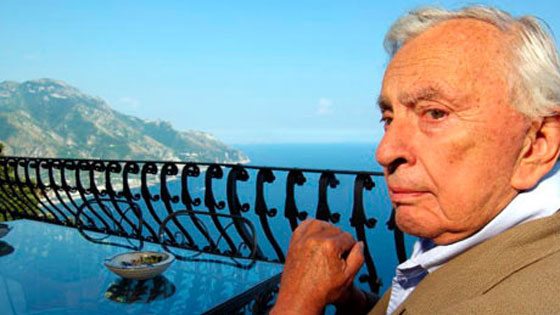
 “Gore Vidal: The United States of Amnesia” is a welcome reintroduction to one of the most fascinating figures of the twentieth century. Gore Vidal made his name as a writer, but he was really so much more – provocateur, pundit, political candidate, socialite, atheist, humanist, both a born insider and the consummate outsider.
“Gore Vidal: The United States of Amnesia” is a welcome reintroduction to one of the most fascinating figures of the twentieth century. Gore Vidal made his name as a writer, but he was really so much more – provocateur, pundit, political candidate, socialite, atheist, humanist, both a born insider and the consummate outsider.
Born in 1925 to a socialite mother and a father who later served in the Roosevelt administration, Vidal was immediately thrust into the turmoil of American politics. He endured a fraught relationship with his mother, but idolized his maternal grandfather, the blind U.S. senator Thomas Gore. Vidal recalls hanging around in the senate and the toughness he learned from his grandfather, who had put himself through law school blind, noting “It’s hard to feel sorry for yourself when you’re around someone like that.”
After serving in the Pacific in World War II, he published his first novel at the age of 21, establishing himself as a writer to watch, but it wasn’t until his third novel that he gained the notoriety that would follow him the rest of his life. “The City and the Pillar,” published in 1948, was one of the first mainstream American novels to deal straightforwardly with gay characters, showing a bravery that Vidal would pay dearly for. The New York Times refused to review his novels for years afterwards, crippling his literary career for a time. However, television was booming and needed writers. Vidal moved to Hollywood where he would write TV and movies for much of the 1950s, most famously working on “Ben-Hur.” Throughout his whole life, he was a prolific writer of essays and his career as a popular novelist eventually revived in the late 60s with “Myra Breckinridge” and his Empire series of historical novels.
Vidal is better suited than many writers to be the subject of a documentary, both because of his genius for short aphorisms and witty one-liners, which are displayed in bold print throughout the film, and because, as he declared in one of these very one-liners, “I never miss a chance to have sex or appear on television.” The film is full of clips from Vidal’s career as a public intellectual, most famously from his televised debate with William Buckley, which almost ended in blows after Vidal called Buckley a “crypto-Nazi.” Vidal was staunchly liberal his entire life, further to the left than most in a liberal era, but though he was a harsh critic of America, particularly its foreign policy, he always considered himself a dedicated American. The closest he comes in the film to complimenting a politician are memories of his friendship with the charming JFK, but he spares no words in describing his “disastrous” presidency.
The film is excellent in showing the amazing scope of Vidal’s social circle, which included actors, authors, politicians, and everything in between, who all came to visit Vidal’s stunning “Olympian” house overlooking the Amalfi coast in Italy. The film is a bit more restrained in telling of Vidal’s sexual liaisons, which included both men and women, though he rejected any attempted labeling of his preferences, claiming that everyone is naturally bisexual and that “to be labeled is to be enslaved.” Despite advocating elsewhere for promiscuity, Vidal’s longest relationship was a sexless one to his partner Howard Austen, whom he lived with for four decades; Vidal noted that the relationship lasted so long because of their deliberate avoidance of sex.
“Gore Vidal: The United State of Amnesia” is a well-made documentary with an inherently interesting subject who might be due for a critical reevaluation. His political voice was always a welcome corrective to a hawkish establishment, continuing into his old age with his prescient criticism of the Bush wars in the Middle East. In his fictional work, he achieved great popularity but little academic recognition, however, his brand of historical revisionism is gaining in cache and more attention is now being paid to his more experimental fiction. The film is a fascinating trip through the twentieth century with a host both charming and challenging.